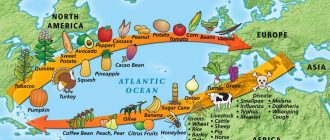Organic Colombian coffee is a result of Colombia’s commitment to environmental welfare, retaining the natural habitat surrounding coffee plantations. Read our guide for more facts and information…
Coffee is among the several crops that are heavily sprayed with pesticides and herbicides, as a result of which idealists from the coffee industry have resorted to organic coffee. There are several reasons to choose organic coffee – to avoid pesticides, to show concern for the environment and for the welfare of coffee workers.
The advent of organic coffee in Colombia
It is obvious that people always have health concerns and readily accept agricultural products that are free from harmful chemicals. Coffee-producing countries decide on the chemicals that farmers use for the coffee crop, and it is a fact that certain chemicals in the form of pesticides and fertilizers help farmers grow far more crops. Hence, if farmers have to give up pesticides, then they require incentives to help them sell a favorable amount of coffee. Therefore, experts in the coffee industry have sought the organic movement, after ensuring that growers would be given adequate compensation for their crops. Thus, natural organic coffee is under production, targeting the affluent lot of the society.
Natural organic coffee of Colombia
Colombian coffee farmers are well known for their consistent production of the world’s best quality gourmet coffee. Organic coffee in Colombia is grown according to standard organic farming techniques, without the use of chemical fertilizers, herbicides or pesticides. They are propagated, cultivated, processed, stored, transported and finally roasted without the interference of chemicals. The whole process is verified by certified monitors, proving that there is no trace of potentially harmful chemicals.
There are three important certifications for coffee namely, organic, shade-grown and Fair Trade. These certifications are carried out in order to create responsible products with regard to the welfare of the environment and the society. They are marketed to affluent consumers, who are socially responsible as well.
Advantages and disadvantages of organic coffee
The problem of chemical-intake from coffee is not as high as that from vegetables and fruits. This is because coffee is not consumed the way raw fruits or vegetables are. Its fruit is removed completely and the seed alone is used, which undergoes high-temperature processes, starting from drying to roasting. Consequently, most – not all – chemicals are eliminated. However, organic coffee is gaining popularity due to the overriding advantages. As mentioned above, it safeguards the environment from chemicals and as it is grown under shade on the Colombian slopes, bird habitats are preserved, which in turn result in natural fertilizing from bird droppings. Birds feed on insects that harm the coffee plant, and hence there is natural pest control. Soil erosion is minimized, and the environment is naturally stimulated to develop pest control. Apart from the environmental aspect, farmers are also benefitted from growing organic coffee.The only drawback is that organic coffee is expensive.
Several brands of Colombian organic coffees have made their way to the mainstream standards, retaining the world-class taste of Colombian coffee. CATIE (Tropical Agricultural Research & Higher Education in Costa Rica) has estimated that Latin America, including Colombia, contributes for 75% of the world’s organic coffee.





